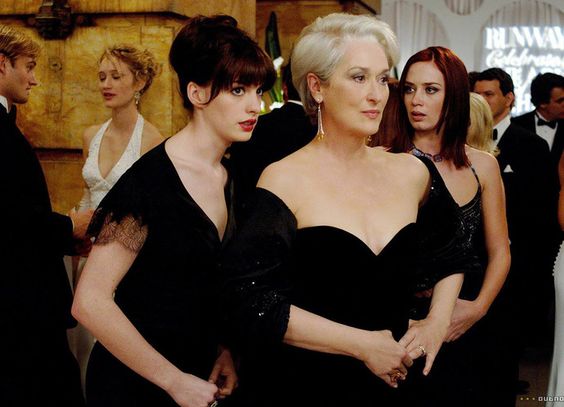
Mean Girls at Work: Why Women Are Bullies
Mean girls at work: Why women are bullies
Regina: Oh, my God! I love your skirt. Where did you get it?
Lea Edwards: It was my mom’s in the ’80s.
Regina: Vintage. So adorable.
Lea Edwards: Thanks.
Regina: [turns to Cady] That is the ugliest effing skirt I’ve ever seen.
The above line is from the classic and brilliant film Mean Girls. The fake compliment was given by Regina George. George is a queen bee at a high school. She rules the social scene because she is a brilliant war strategist. Seriously General Patton has nothing on this girl. Everything looks effortless but every move is actually calculated. And though I would like to say this type of foul play only exists in high school and (wildly entertaining) movies, that is absolutely not true.
Woman-on-woman harassment is on the rise. Thirty-five percent of Americans reported being bullied at work, according to a 2010 survey by the Workplace Bullying Institute. Female bullies more frequently engaged in under-the-radar behaviors such as sabotage (53.7 percent of female vs. 39.9 percent of male bullies) and abuse of authority (50.2 percent vs. 44.7 percent), as compared to the more observable form of verbal abuse engaged in by more male than female bullies, at 57.5 and 47.1 percents, respectively.
Why are we picking on our kind? Well in some ways, it is because we are own worst enemies. One reason women choose other women as targets “is probably some idea that they can find a less confrontational person or someone less likely to respond to aggression with aggression,” said Gary Namie, research director for the Workplace Bullying Institute.
Women are not raised to be confrontational. They are supposed to be the nurturing peacemakers. I am a classic example of this. If someone is literally arguing near me I remove myself from the room. When the barista screws up my drink and spells my name wrong I apologize for ordering an annoying drink (so anything that isn’t black coffee) and that my name isn’t Bob. I don’t confront people. I wait until I get home and then talk about the person behind their back to anyone that will listen. I was raised right.
But women are seriously trying to take other women down in some ways because they are threatened by them. Washington Post journalist Selena Rezvani wrote:
While workplace studies show women are routinely underestimated compared to men, we don’t give much credence to the fact that women hampering other women is also to blame…. Many of us have witnessed the man who comments on a woman’s hotness just as she leaves the room. But what about the woman who criticizes another’s appearance (Did you see what she was wearing in there?) or frowns on a woman’s unapologetic use of power (Just who does she think she is?)?
And in a way, I think the woman who waits for the other woman to leave the room or tries to sabotage her very quietly is even scarier than the loud-mouthed confrontational lady. Think how scary Miranda Priestly was in The Devil Wears Prada. Her voice level was barely above a whisper and she was absolutely terrifying. Women can be so sneaky. On an episode of the brilliant but short-lived series Don’t Trust the B in Apartment 23 the naive June thought the only other girl on investment bank team was trying to befriend her, but she was only finding out information about her to take her down later. It made for a hilarious episode, but in real life, that would not be so fun.
Now, this behavior is partly because it took women such a long time to make progress in the workplace and we don’t want to go backwards, but this is really hurting us. According to Catalyst, women make up more than 50 percent of management, professional, and related occupations but only 15.7 percent of Fortune 500 officers and 15.2 percent of directors were women. This lack of support is part of the problem.
According to new research, one of the major reasons we don’t see women being promoted is because women at higher levels do not help other women get ahead. Women at the top experience something called “value threat” which causes them to not want to help other women.
Michelle Duguid, PhD, assistant professor of organizational behavior at Olin Business School and author of Female Tokens in High-prestige Work Groups: Catalysts or Inhibitors of Group Diversification? identifies two forms of value threat she thinks affect the behavior of female tokens in high-status work groups in the context of promotion and selection — competitive threat and collective threat.
“Competitive threat is the fear that a highly qualified female candidate might be more qualified, competent or accepted than you are,” Duguid writes. “Women also might be concerned about bringing in another woman with lower qualifications, who could reinforce negative stereotypes about women and impact others’ impressions of them. This is collective threat.”
Basically, we are still all in high school.
The woman bullying program is really due to the environment. A study from the Netherlands found that if a woman was in a sexist environment she was far more likely to behave like an alpha female or Queen Bee. The woman would actually become more sexist than her male counterparts as a result. “These women are concerned that if they are seen to be helping other women rise to the top or supporting other women in the workplace, they will be derided by the men at work, and will be seen as operating counter to the culture rather than acting like one of the boys,” according to research.
Rezvani said women, especially those at the top levels in their careers, may be experiencing some sort of “sexism amnesia.” She wrote, ” They may forget what it’s like to be junior, to have little sway, and to be underestimated as a young woman. When they finally do get to the top, they adopt the mindset of those around them and gloss over their past struggles. Even harsher is the sink-or-swim school of thought whose club motto is, ‘I was treated like dirt on my way up, so you should be too.’”
These women make Regina George sound like a day at the beach.
















































